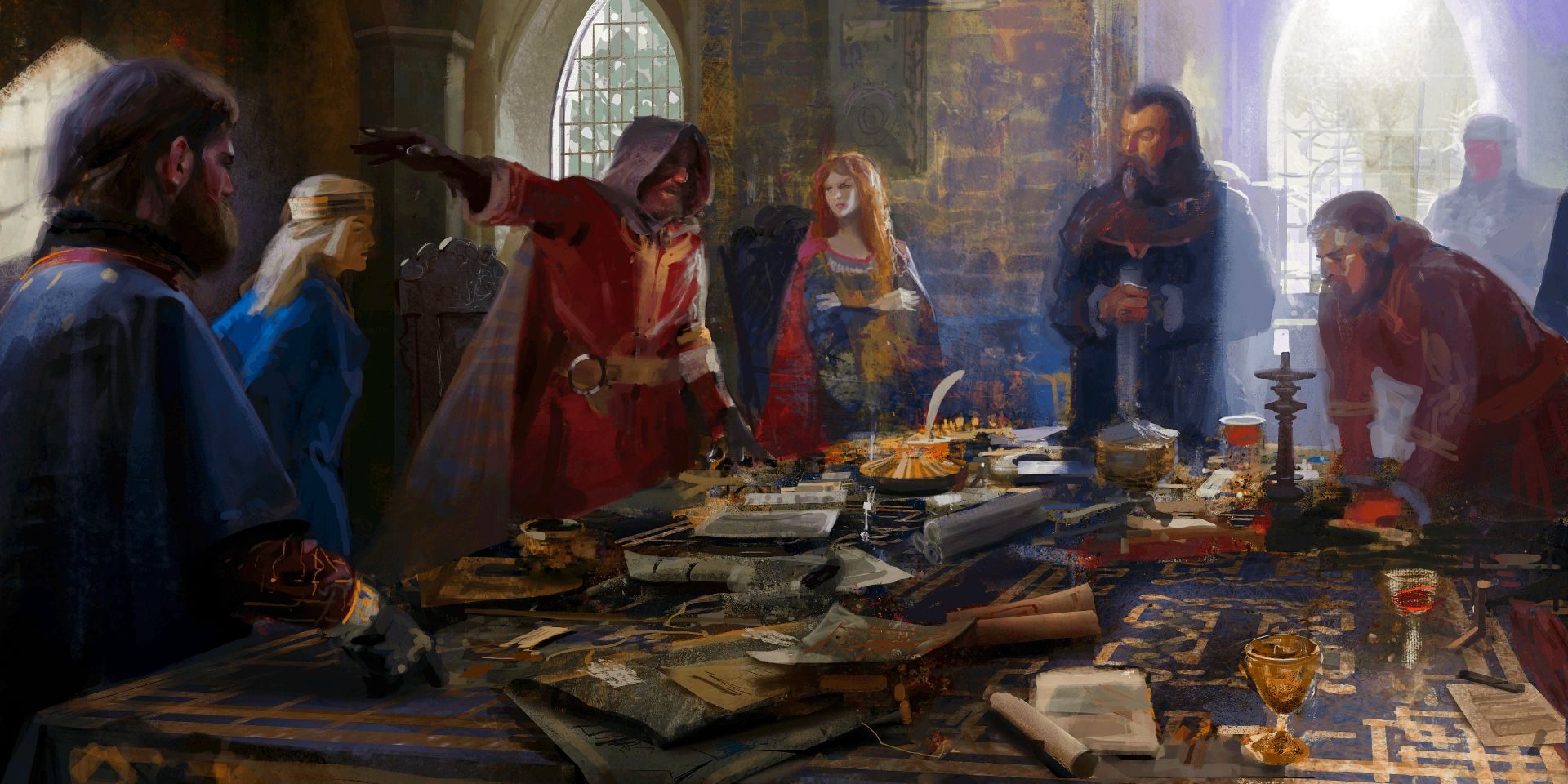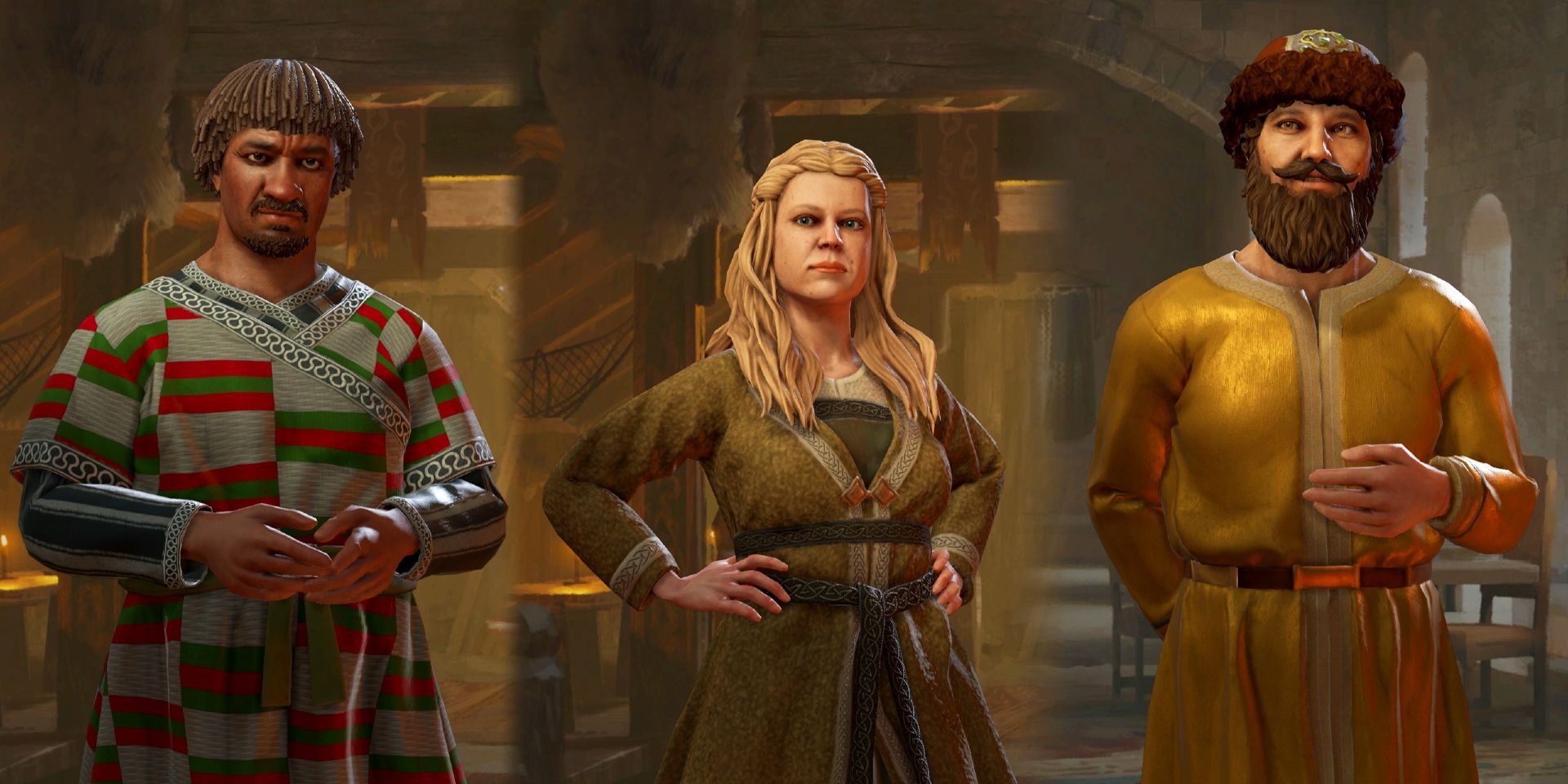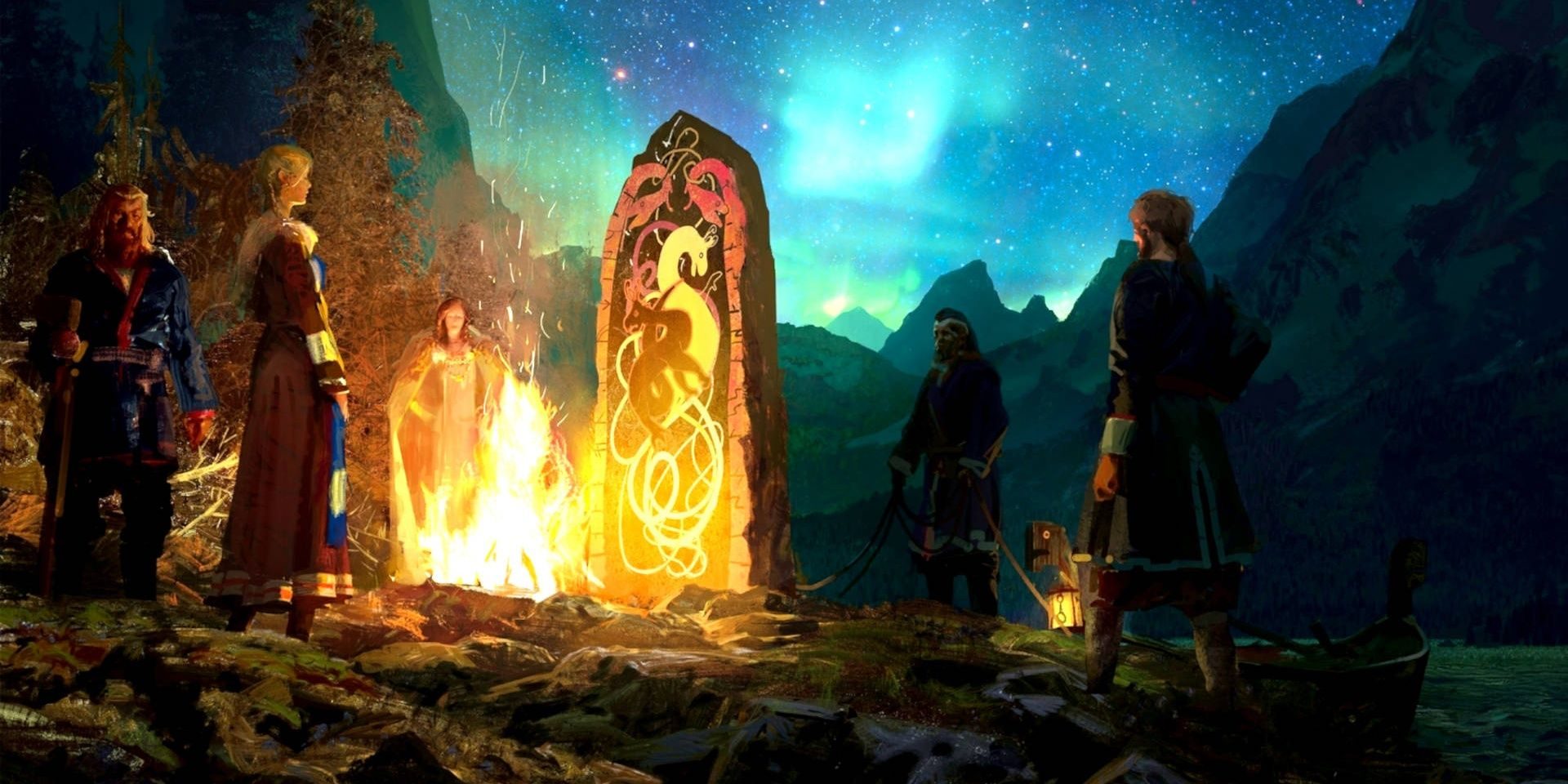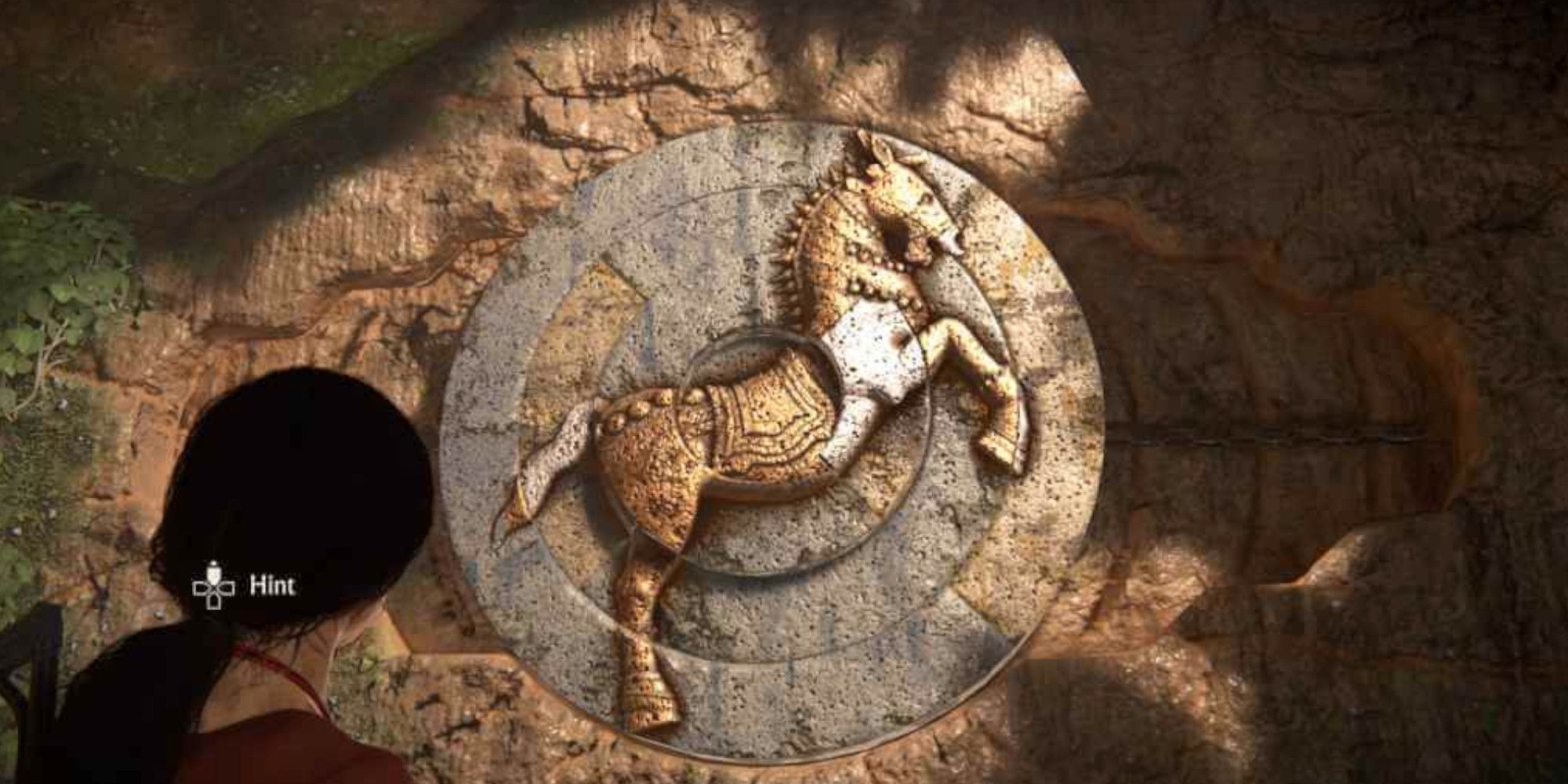Across the globe, there are thousands upon thousands of different cultures that are composed of individuals with regionally appreciated values, opinions, and ways of life. While Crusader Kings 3 is extremely detailed and complex, there is nowhere near this number of cultures in the game.
RELATED: Crusader Kings 3: Pro Tips To Level Up Your Rule
Despite this being the case, there are still dozens of different cultures that players can experience through their character, though, sometimes one's culture can change, either willfully or as a result of some great paradigm shift. Knowing about one's own culture and that of one's neighboring rulers is essential for conquering and ruling successfully, as there are many mechanics revolving around them.
Updated on August 30, 2021, by Reyadh Rahaman: With so many different ways to define groups of people across the world, it can be tricky to keep track of all the details. Thankfully, every culture is sorted under a cultural group, which can be useful to remember as opposed to the individual cultures within it.
Learning to broadly associate certain potential actions and traits as positive or negative from the perspective of a designated cultural group can allow players to apply the proper diplomatic, martial, or intrigue-related methods for dealing with one's neighbors.
Culture In Crusader Kings 3 Explained

Culture Overview
Culture in the game, much like in real life, is composed of the languages, local customs, and technological methods of a particular population. Additionally, there are different cultural groups as well, meaning that a few different cultures can belong to the same group, and, as a result, people dislike each other less than those of completely foreign cultures and cultural groups.
Crusader Kings 3 Culture Groups & Culture Opinion Modifiers
- Same cultural group & same culture: No opinion change
- Same cultural group & different culture: -5 opinion
- Different cultural group & different culture: -15 opinion
RELATED: Crusader Kings 3: Everything You Need To Know About Your Character
Effect Of Culture On A Ruler
Rulers will have an easier time managing a realm full of people who share the same culture and culture group. This is primarily because people will be able to relate to and trust an individual who upholds the same values as the common folk. It is especially important to make sure that all of one's vassals are the same culture and cultural group if one wants a smoother, less revolt-ready rule.
All The Ways To Change Culture In Crusader Kings 3

Changing Culture With A Minor Decision
Once in a character's life, the player can choose to convert to the local culture if they are not already part of it. On the vertical menu bar on the right side of the screen, near the top, there is a brown icon that looks like a quill and bottle of ink. To reach the "Convert to local culture" decision, click this button to open up this small menu and take action. The minor decision to "Have the realm embrace local traditions" is also available through this tab and will allow players to convert their entire realm.
Changing To A Specific Culture With A Major Decision
Landed characters who possess a court can take important actions while ruling their lands in the form of many specific major decisions that only appear if the player meets one of the more significant requirements to make them. There are 4 major decisions that can be taken to change one's culture to that of a specific group.
- Embrace English Culture (Adopt English Culture)
– Must be an adult
– Must own the Kingdom of England title
– Must have one's capital in the Kingdom of England
– Must be of the Frankish culture group
- Embrace Outremer Culture (Adopt Outremer Culture)
– Must be of the Frankish culture group
– Character or liege must be of a Christian faith
– Must form the Outremer Empire decision
– Must have one's capital is in the region of Africa, the Middle-East, or Persia
– Must possess or have a liege that possesses the Empire of Outremer title
- Establish Norman Culture (Adopt Norman Culture)
– Must be at peace
– Must own and fully control the Duchy of Neustria
– Must be of the Norse culture group
– Must have at least one county de jure part of the Duchy of Neustria that has French culture
– Norman culture must not exist yet
- Unify the Burgundies (Adopt Occitan Culture)
– Must be an adult
– Must be at peace
– Must have capital in the region of Burgundy
– Must control the region of Burgundy
– Liege must own the Holy Roman Empire, Empire of Francia, or Kingdom of France title
– Level of Fame is at least Illustrious
RELATED: Crusader Kings 3: How To Increase Prestige Quickly
Changing Culture As A Result Of A Demand
On occasion, populist factions can rise up and become a problem if the population of one's lands does not match that of the ruler, and, if such a populist faction defeats the player in battle, they can demand their liege's cultural (and sometimes faith) conversion.
Changing The Culture Of A Child
If the player has the power to do so, they can assign a child (either themselves, their heir, or other kids) to a guardian of a different culture. While doing so, one can select the "Convert culture" option when setting up the new ward and guardian relationship.
Changing The Culture Of A County
The most tried and true method of converting decent chunks of the population at a time is to utilize one's steward. In the Council menu, take note of the 3 icons in the portrait of one's active steward to find the one that looks like the top of a lit candle. This button is to get one's steward to perform the "Promote Culture" action in the county that one can select after clicking the small candle button.
List Of Cultures In Crusader Kings 3

There are close to 40 cultural groups in total within Crusader Kings 3, and most have multiple cultures under them. While it is more useful to keep track of them by their names, players should also note the differences in each group's names for their rulers and champions, as this can give players an indication of the kind of cultural group they are from without having to check a specific character's profile.
Appearances between cultural groups will also vary, as can be seen in the changes of clothing as well as the different looks of a nation's armies and coat of arms. These features are all important to properly represent the different people players will encounter throughout their crusades and (hopefully) long years of reigning supreme. Here's a two-part alphabetic breakdown of each cultural group and the cultures within them to use as a reference.
| Cultural Group – Part 1 | Cultures |
| Akan | Akan, Guan, Kru |
| Arabic | Andalusian, Bedouin, Egyptian, Maghrebi, Mashriqi, Yemeni |
| Baltic | Latgalian, Lithuanian, Prussian |
| Balto-Finnic | Estonian, Finnish, Karelian, Sami, Vepsian |
| Berber | Baranis, Butr, Zaghawa |
| Brythonic | Breton, Cornish, Cumbrian, Pictish, Welsh |
| Burman | Burmese, Mon |
| Byzantine | Alan, Armenian, Assyrian, Georgian, Greek |
| Central African | Hausa, Kanuri, Nupe, Sao |
| Central Germanic | Bavarian, Dutch, Franconian, Frisian, German, Saxon, Swabian |
| Chinese | Han |
| Dravidian | Kannada, Tamil, Telugu |
| East African | Daju, Ethiopian, Nubian, Welayta |
| East Slavic | Ilmenian, Russian, Severian, Volhynian |
| Frankish | Frankish, French, Norman, Occitan, Outremer |
| Goidelic | Gaelic, Irish, |
| Guinean Uplander | Bobo, Gur, Malinke, Marka, Mel |
| Horn African | Afar, Beja, Somali |
| Iberian | Aragonese, Asturleonese, Basque, Castilian, Catalan, Galician, Portuguese, Suebi, Visigothic |
| Indo-Aryan | Assamese, Bengali, Gujarati, Hindustani, Kashmiri, Marathi, Nepali, Oriya, Punjabi, Rajput, Sindhi, Sinhala |
| Iranian | Afghan, Baloch, Daylamite, Khwarezmian, Kurdish, Persian, Saka, Sogdian, Tajik, Tocharian |
| Israelite | Ashkenazi, Sephardi |
| Latin | Cisalpine, Italian, Lombard, Roman, Sardinian, Sicilian |
| Magyar | Hungarian, Mogyer |
| Mongolic | Buryat, Jurchen, Kerait, Khitan, Mongol, Naiman, Oirat, Tuyuhun |
| North Germanic | Danish, Norse, Norwegian, Swedish |
| Qiangic | Qiang, Tangut |
| Cultural Group – Part 2 | Cultures |
| Sahelian | Bozo, Mossi, Qaw, Songhai, Soninke, Sorko |
| Senegambian | Pulaar, Serer, Wolof |
| South Slavic | Bosnian, Bulgarian, Croatian, Serbian, Vlach |
| Tibetan | Bodpa, Kirati, Lhomon, Sumpa, Tsangpa, Zhangzhung |
| Turkic | Avar, Bashkir, Bolghar, Chuvash, Cuman, Karluk, Khazar, Kimek, Kipchak, Kirghiz, Laktan, Oghuz, Ongud, Pecheneg, Shatuo, Uriankhai, Uyghur, Yughur |
| Urgo-Permian | Bjarmian, Ostyak, Permian |
| Volga-Finnic | Mari, Merya, Meshchera, Mordvin, Muroma |
| West Germanic | Anglo-Saxon, English, Old Saxon, Scots |
| West Slavic | Czech, Polabian, Polish, Pomeranian, Slovien |
NEXT: Crusader Kings 3: Everything You Need To Know About Marriage & Family


